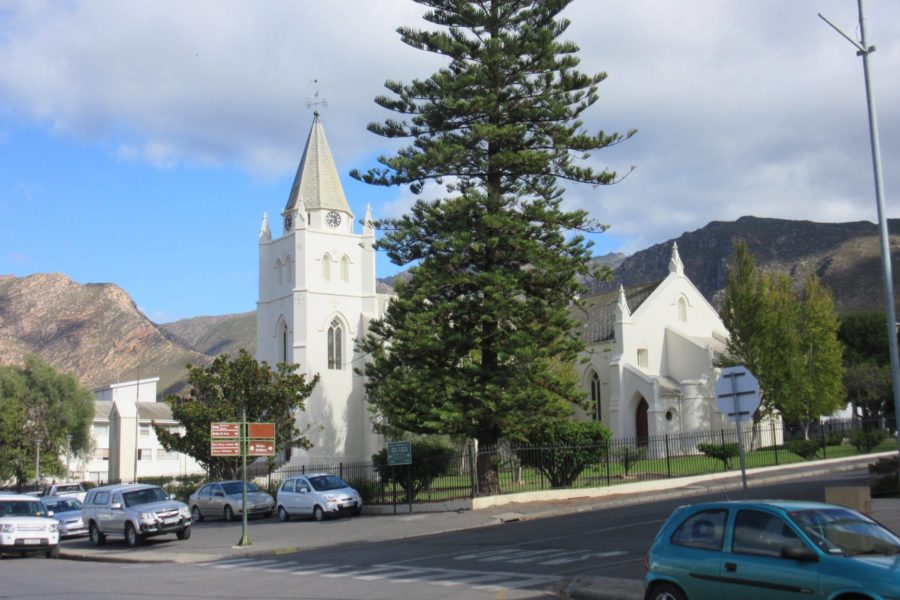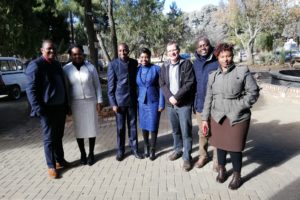Does it Really Matter if God Exists?
Aafje Heynis was a famous Dutch contralto with an angelic voice. During the Second World War, she was in the prime of her career. One of the songs that made her famous was “Dank Sei Dir Herr” (composed by Siegfried Ochs). It is shown on YouTube with the deeply moving scenes of the Netherlands being liberated by Canadian soldiers from Nazi occupation in 1945. Scroll down and watch it for yourself…
How can anyone watch this video without being filled with immense gratitude… singing with her: “Thanks be to Thee’’? Watching it makes you feel at once that there is a common bond between us humans and of how fitting it is to “give thanks” to God when it is really due.
But whom will we ultimately thank if there is no God? Who will you thank if you barely escaped a burning wreck by the skin or your teeth, or if your little child has been rescued from a mighty torrent by somebody’s heroics if there is no God?
Christian apologist Ravi Zacharias wrote a book called Can Man Live without God? It’s made up of talks he gave at university campuses around the world related to the topic. Zacharias says the two most important questions any generation can and must answer are these two: “Is there a God? And if there is, what kind of God is He?”
Without God, you certainly have no-one to thank but the Canadian soldiers, if you were living in Holland in 1945. Or the pilot for that matter who managed to bring your aircraft safely to the ground in an emergency landing, or the fellow who risked his life to save your child. That’s it! But that’s just the beginning of your plight if there is no God. It only gets worse, when you dare to think deeper about the issue. To really know where it will bring you, read Friedrich Nietzsche’s famous Parable of the Madman of 1882.
William Lane Craig in his book On Guard asks the question: “What difference does it make if God exists?” What if He is truly there, and if life does not end at the grave? And what if He isn’t? It is here where atheism truly breaks down and leaves man completely empty-handed. Russians, after 70 years of Communism, knew what it meant to live in a Godforsaken state and society. So much so, that it took very little to convince them en masse – once the iron curtain came down – that they wanted God back in their homes and society! That much the famous Russian cosmologist Andrei Grib told Craig one day in St. Petersburg.
Before Grib, Alexander Solzhenitsyn, the famous author of The Gulag Archipelago published in 1973, related how many times he had heard his father saying during the brutal rise of Communism in Soviet Russia: “All this is happening because we have forgotten God”. In the previous 19th century, Fyodor Dostoevsky’s timeless novel The Brothers Karamazov (1880) saw it all coming. The eternal skeptic Ivan repeatedly tries to convince his peers (including his godly brother Alyosha) that “if there is no God, then anything is permissible”. The third brother Karamazov, Dimitri, then tries to live his life accordingly, and ruins it completely, ending up a broken man in prison. Ivan the skeptic lives out his days a profoundly disillusioned and unhappy man. Alyosha is the only one whose life seems to have meaning and purpose and a deep sense of happiness. In other words, Dostoevsky saw it all coming long ago for his beloved Russia.
But in the West, we have so become used to God that we take Him for granted. We have produced one great thinker after another over two centuries since Nietzsche, telling us that though life without God is absurd, we should nevertheless pursue it and try to contribute meaning to it ourselves. But if there is truly no God then life is indeed absurd as Nietzsche predicted, period. Whether we experience life as meaningful is irrelevant. Whether it is indeed meaningful without God is all that matters. No appearance of meaning will do…
Craig continues, not only man but “… the universe too faces a death of its own. Scientists tell us that the universe is expanding, and the galaxies are growing farther and farther apart. As it does so it grows colder and colder as its energy is used up. Eventually, all the stars will burn out, and all matter will collapse into dead stars and black holes. There will be no light; there will be no heat; there will be no life; only the corpses of dead stars and galaxies, ever expanding into the endless darkness and the cold recesses of space – a universe in ruins”. This is not science fiction. This is what is really going to happen according to solid science… unless God intervenes. Without God, not only your life and mine are doomed to meaninglessness, but the very universe itself. What an untold blessing then, ultimately to know Whom to thank for every good thing in life – and for life itself!
Little wonder Psalm 135 calls on us to “give thanks to God for he is good”, repeating the words “for his love endures forever” 26 times! And that St. Paul could write to the Thessalonians: “Give thanks in all circumstances, for this is the will of God in Christ Jesus for you” (ESV).








